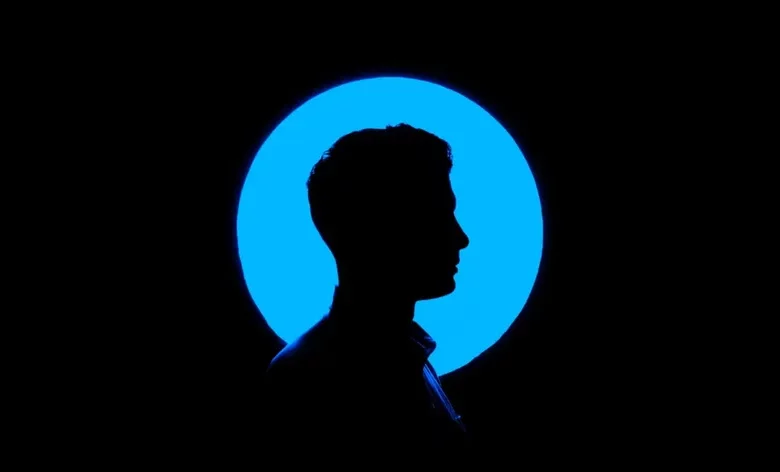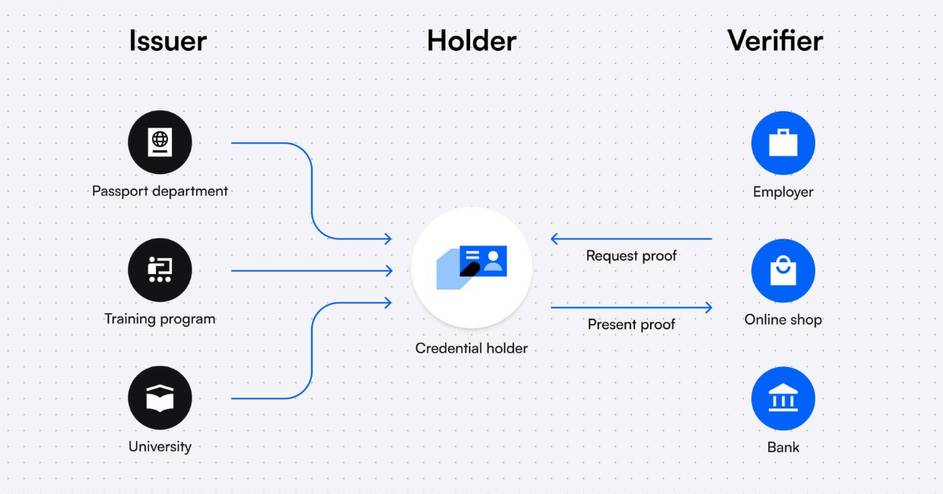
Your data is not in your hands, and these decentralized identity projects want to change that.
Identity is a fundamental human right that gives us the power to participate in society. With the internet in place, our contribution is enhanced even more. Yet, with such power amid an era of data centralization and commodification, the need for an elaborate identity system cannot be emphasized enough.
Fortunately, the next generation of the internet is founded on blockchain technology, the building block of decentralized identity. Projects based on this concept are already up and running and could impact how we use the internet.
1. Universal Identity
We all manage our digital identities through email addresses and passwords across multiple websites. We’ve had to remember passwords for each website we created an account for and made password mistakes that compromised our accounts.
Blockchain technology introduces the concept of universal identity, where you can easily log into websites across the internet with one click eliminating the need for repetitive login credentials.
Your identity is linked to a public and private key pair; a public key through which a user is recognized across digital platforms, and a private key stored in a blockchain wallet. This system enables seamless authentication across blockchain-enabled platforms.
The innovation will have significant implications for social networks, considering it can enable entire social graphs to be transferred between websites, fostering a more interconnected digital experience.
For instance, Sovrin, an open-source, decentralized network, was built to offer people and organizations self-sovereign digital identities that give them complete control of their data. It uses a combination of cryptographic principles to enable universal identity across different platforms.
Other projects actively building infrastructure for universal identity solutions include Civic and SelfKey. Identity management platforms will empower people to attain more data privacy.
2. On-Chain Reputation
Fake news is just one of the many challenges of Web 2.0. Managing online information is challenging when anyone can create an account unlined to their identity and publish whatever they want without repercussions. Some even generate parody accounts of influential personalities and pretend to be them.
Fortunately, decentralized identity systems will enable the integration of reputation data directly into the blockchain. Anchoring reputation data on the blockchain will make it harder for bad actors to manipulate or falsify their reputations.
Reputation on the chain will ensure transparency and immutability in tracking and verifying the reputation of individuals online. This will foster trust in online interaction, as users will be fully responsible for their reputation score. Also, it will enable people to make informed decisions based on reliable reputation data.
A good example is Drep, a decentralized ID system and reputation protocol that seeks to enable reliable reputation management on marketplaces. It verifies user identity, tokenizes the user’s reputation, and facilitates reputation mechanisms such as upvoting and downvoting. Other similar projects include Fantom and Ontology, which offer trusted collaboration platforms.
Decentralized reputation systems will impact our most fundamental online platforms as the need for trust in society grows. The immutability of these blockchain-enabled systems will deter people from malicious activities, as bad behavior will have consequences.
3. Ownership of Personal Data
If you could gather all the data that Google, Facebook, and Amazon have on you, you’d be astonished. Yet these are just a few of the many companies that have been collecting your data for years. In their terms of service, they state that they own your content which warrants them to use it as they wish.
Of course, GDPR data privacy regulations are being implemented by governments worldwide, but they can only do so much to protect citizens’ data; however, with the integration of blockchain technology, an internet where data privacy is taken more seriously is imminent.
Decentralized identities will give people actual ownership of their data. Personal devices and digital applications will store and encrypt data locally with a private key. This prevents identity-encoded information from being stored in centralized servers subject to public exposure or institutional commodification without the user’s permission.
Already, several projects are working towards giving back data ownership to consumers. For instance, Blockstack integrates a decentralized DNS system into a browser add-on to empower consumers to control their online transactional data.
Internet users want personal data control, and decentralized digital identity is the most practical way they regain control. In addition, it will empower them to start monetizing and benefiting from personal data.
4. Zero-Knowledge Proofs
Today, if you wish to prove something about yourself, you must expose sensitive information. For instance, to get a bank loan, you must reveal your net worth or income. Equally so, for you to vote in a democratic process, your identity must be known.
Zero-knowledge proofs technology will change that. When applied, individuals can prove the validity of information without disclosing the data itself. As such, the privacy of sensitive data remains intact.
When applying for a loan, individuals can prove they meet specific financial criteria without revealing their income or net worth. This will enhance privacy and security in online interactions, ensuring that personal information is shared only on a need-to-know basis.
Zcash is a prime example of a real-world application of zero-knowledge proofs. It’s a digital currency designed to keep everyday transactions and savings private. It uses zero-knowledge proofs to verify a user’s wallet balance and transactions are accurate before a transaction without revealing the information.
In Web 3, zero-knowledge proofs will be instrumental in verifying and authenticating the identity or claims of people online without exposing the actual identity data. This will keep personal data under the control of the individual and reduce the risk of unauthorized access.
5. Sybil Attacks Resistance
A Sybil attack occurs when an attacker creates many pseudonymous identities in a computer network service and uses them to gain influence. Sybil attacks have been a pervasive challenge in Web 2.0. But that will change with the implementation of decentralized identities.
Online platforms will require reputable issuers to verify and issue digital identities for their users to establish their authenticity. This verification process makes it hard for attackers to create fake accounts and bots they can use to influence the network or people’s perception of reality.
An important building block for establishing a decentralized digital identity is the Proof of Personhood mechanism. The first generation of these mechanisms was the CAPTCHA test, primarily used to combat DDoS attacks. But the flaw with the solution is that its algorithmically generated and can therefore be solved algorithmically, especially with AI.
The next generation of Proof of Personhood will employ human skills that AI can’t easily replicate, like common-sense reasoning and cooperative gaming.
For instance, Idena, a Proof of Person blockchain, requires users to solve the FLIP test (a CAPTCHA-like test that requires a semantic interpretation of how two objects are related) in authentication ceremonies, and it rewards them with tokens for proving their humanity.
Is Decentralized Identity Necessary?
It’s easy to dismiss a transparent, empowering identity system if you have yet to face the challenges of a lack of it. Stolen identity, hacking, and doxing are some problems internet users face with the current internet infrastructure. Don’t forget internet companies with people’s data can use it for their benefit.
Wouldn’t it be better if we had complete control of our data and weren’t susceptible to identity crime? Decentralized identity offers solutions for most of these problems. This innovation is, therefore, crucial if we desire a world where users’ identities and privacy are respected.




